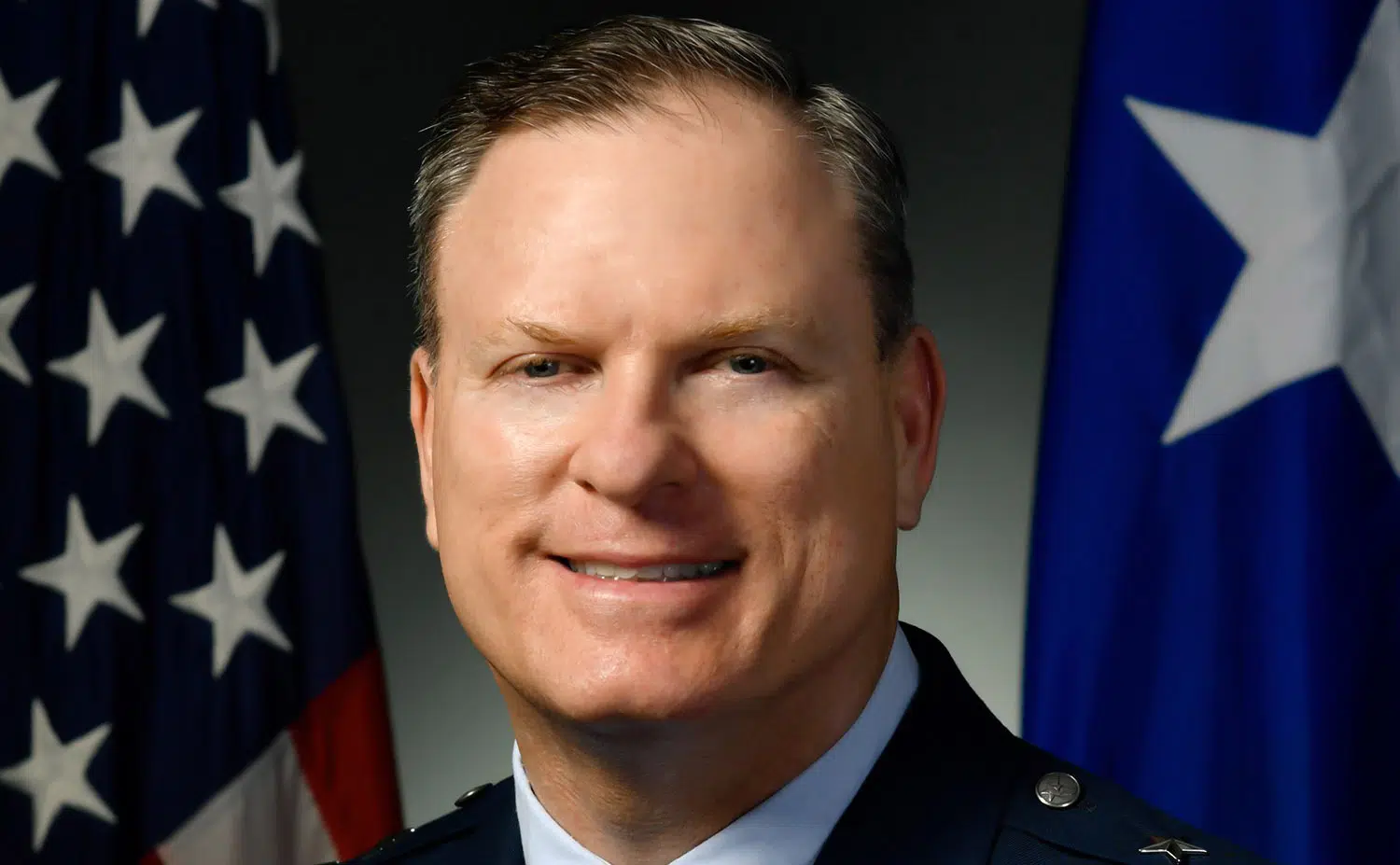“I originally planned to serve my country for four years and then apply to law school. My father served in the U.S. Air Force as a Crew Chief on the B-47 during the Cold War, and I admired the mission of the Air Force. I ended up enjoying the service so much that I made it my career for more than 33 years.”
Major General Blake (Retired), PRIDE Industries’ Chief Operating Officer, served in the military in a variety of leadership roles for the Department of Defense and the United States Air Force including procurement, contracting, and program management of major weapon systems acquisitions, installation management, contingency operations, and government procurement policy. Through his distinguished service to our country, Major General Blake earned 19 major awards and decorations, including the Distinguished Service Medal.
“I was constantly in leadership training for my entire career. Since I started my journey at a military college, the transition was easier for me. After I graduated from The Citadel, one of my early assignments in my career was on a NATO Fighter Wing at Ghedi Air Base, Italy where I learned a lot about the operational Air Force and working jointly with a coalition NATO partner. It was a wonderful experience in a beautiful location, and I had many opportunities to travel around Europe. The Air Force continued to offer me great assignments and promotions.”
“As a Lieutenant Colonel, I served in Iraq in support of Operation Iraqi Freedom in 2004, within a year of the start of the Campaign. It felt completely different compared to my other assignments in that I was now in a combat zone and realized all the training up to this point really mattered, as a lot was at stake. I oversaw the efforts to rebuild the country’s electrical, transportation, and communication infrastructure worth about $8B, all while fighting an insurgency.”
“I returned to serve in 2006 in Iraq before the surge (the deployment of more than 20,000 soldiers into Iraq in 2007) to participate in a special mission commissioned by the Secretary of Defense and Chairman of the Joint Chiefs of Staff to assess the operational vulnerabilities associated with contracted combat services support to the maneuver warfighting divisions. This became critical in how we apportioned warfighters across the theater of operations. Every time we went outside the Forward Operating Base, we were always armed and prepared for the unexpected, especially since IEDs were a common threat.”
“My final tour abroad during wartime was in Afghanistan from 2011 – 2012. It was the first time that we were literally writing contingency Contracting doctrine while engaged in a full operational campaign. We put Contracting on the offense to enable success across the entire joint operations area from kinetic maneuver to non-kinetic economic stability.”
“Every assignment I had was significant, but the four times I served as a commander were transformative leadership opportunities. Being responsible for the well-being of airman and their families was a huge responsibility that I didn’t take lightly. In each of these commands, not only did I train and prepare multiple airmen for deployment to Iraq, Afghanistan, and other contingency operations but I also was responsible for executing my unit’s operational mission. My largest command assignment was at Wright-Patterson AFB, leading the Air Force Installation Contracting Agency overseeing the functional contracting mission of some 70 Air Force installations worldwide.”
“I retired from the Air Force effective August 1, 2018 as the Deputy Assistant Secretary for Contracting, Office of the Assistant Secretary of the Air Force for Acquisition. I had fulfilled my time-in-grade (rank) commitment of three years and was eligible to seek permission from the Air Force Chief of Staff to retire. I always understood that at some point in time, I would have to take the uniform off. I knew I would miss the military mission and the people, but I felt excited about planning my next steps in life.”
“I became acquainted with PRIDE Industries in 2000 when I assumed command of the 60th Contracting Squadron at Travis AFB. My prior experience up to this point in my career involved major weapons systems acquisition, and this was my first operational Contracting assignment working with an AbilityOne® contract focused on hiring people with disabilities. I was unsure how this would work at first but became quickly impressed when I saw PRIDE in action. The AbilityOne® mission is a means for the Air Force to exercise good stewardship with the local communities, as it creates opportunities for people with disabilities to work on federal military bases who might not otherwise have the chance. The jobs that PRIDE offered provided self-esteem, self-respect, and dignity for their employees. I immediately became an advocate for AbilityOne® and stayed connected with the Program throughout the rest of my career. When the opportunity to work for PRIDE became available, I leaped at the opportunity and was excited to join PRIDE.”
“I always believed that my identity should not ever be determined by rank, position, or title but rather by character. My advice to other veterans transitioning from the military would be not to lose your identity, never forget what it meant to serve, and plan well in advance for leaving because it arrives quickly.”
“Many veterans have invisible disabilities. You might see one veteran that is missing a limb, but you can’t physically see PTSD. It is important to understand that many wartime veterans may not eagerly share their wartime experiences because it may be too emotional for them to discuss and difficult for many civilians to fully understand and appreciate the enormity of the sacrifices they selflessly made. These veterans have finished their service and choose to continue serving in their respective communities despite the obstacles they might live with.”
“The best feeling that I had during my service was when I was approached by people while wearing my uniform at the airport. Their appreciation was always heartfelt, but I always mentioned that my family deserved praise, as well. Military families continue to be the bedrock of each veteran’s support system and are essential to the success of our country’s armed forces.”

“The jobs that PRIDE offered provided self-esteem, self-respect, and dignity for their employees.”
